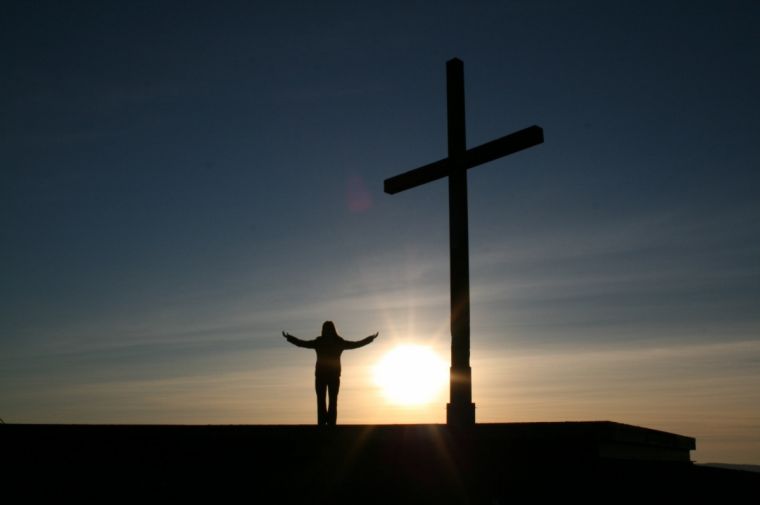A new dawn: Catholics and Protestants have a shocking amount in common, new Pew research finds

Protestants and Catholics across the West now agree on so much – including the route to salvation being both faithand works – that Christians of past centuries would be shocked, according to a new Pew survey marking the Reformation's 500th anniversary.
Across both Western Europe and the US, the prevailing view is that there is more than unites Protestants and Catholics than divides them, the new Pew research finds.
And while the Reformation led to more than a century of wars and persecution in Europe, both denominations across the continent now express keen willingness to accept each other as neighbours and even as family members.
Despite Martin Luther and other Protestant reformers in the 16th century having advocated that eternal salvation is attained solely through faith (a belief known in Latin as sola fide), the surveys show that many Protestants today say instead that eternal salvation is attained through a combination of faith and good works – which is the traditional Catholic position.
Further, in most of the Western European countries surveyed, Protestants who believe that salvation depends on both faith and works outnumber those who say salvation comes through faith alone.
Meanwhile, more than half of US Protestants also now believe that church teaching and traditions are as important as the Bible when it comes to faith, the findings reveal.
The new research is based on two separate Pew Research Center surveys – one in Western Europe and one in the US – conducted in recent months.
In Western Europe, the Center conducted telephone surveys among more than 24,000 people across 15 countries. In the US, the survey was conducted online among more than 5,000 panelists on Pew Research Center's American Trends Panel. The results of the two surveys are presented separately because they were conducted using different modes - the European surveys were administered by interviewers via telephone, and the US survey was self-administered online - and because they included some different questions.
The US survey found that around half of US Protestants (52 per cent) say that both good deeds and faith in God are needed to get into heaven -- historically a Catholic position. The other half (46 per cent) say that faith alone is needed to attain salvation.
Meanwhile, some 46 per centof US Protestants say that the Bible provides all the religious guidance Christians need, a traditionally Protestant belief known as 'sola scriptura'. But 52 per cent say Christians should look for guidance from church teachings and traditions as well as from the Bible – again, the position held by the Catholic Church.
Indeed, only 30 per cent of all US Protestants affirm both sola fide and sola scriptura.
However, belief in sola fide and sola scriptura is much more prevalent among white evangelical Protestants than among white mainline Protestants or black Protestants in the US.
Among self-identified white evangelicals, 44 per cent express both convictions, and this figure rises to 59 per cent among white evangelicals who say they attend church at least once a week.
Religious literacy is reasonably high among those who were surveyed.
Most US adults (65 per cent) correctly identify the Reformation as the term commonly used to refer to the historical period in which Protestants broke away from the Catholic Church.
A similar share (67 per cent) correctly identify Martin Luther as the person whose writings and actions inspired the Reformation.
However, far fewer (23 per cent) know that only Protestants traditionally teach that salvation comes through faith alone; 45 per cent erroneously say that both Protestantism and Catholicism traditionally hold that position, and only 19 per cent say that neither religious tradition espouses sola fide, while one-in-ten US adults (11 per cent) say that only Catholicism traditionally teaches that salvation comes through faith alone.
In the Western European survey, Pew found that in nearly all of the European countries surveyed, majorities of both Catholics and Protestants adhere to the traditionally Catholic view that both faith and good works are necessary to attain salvation.
In every country except Norway, where 51 per cent of Protestants say salvation comes through faith alone, belief in sola fide is a minority view, even among Protestants.
Separately, Catholics and Protestants in Western Europe generally report low levels of religious observance, withaverages of just 8 per cent of Protestants and 14 per cent of Catholics saying that they attend religious services weekly or more.
Pew found that while the impact of secularisation is apparent, so too are pockets of religiosity. For example, the Netherlands has a relatively high level of disaffiliation, with about half of Dutch adults (48 per cent) describing themselves as atheist, agnostic or 'nothing in particular' religiously. Yet 43 per cent of Dutch Protestants also say they go to church at least once a week.
In every European country surveyed, roughly nine-in-ten, or more, Protestants and Catholics say they are willing to accept members of the other tradition as neighbours, and large majorities of both groups say they would be willing to accept members of the other group into their families.
For example, 98 per cent of German Protestants say they would accept Catholics as members of their family, and a similar share of German Catholics (97 per cent) say the same about Protestants.











